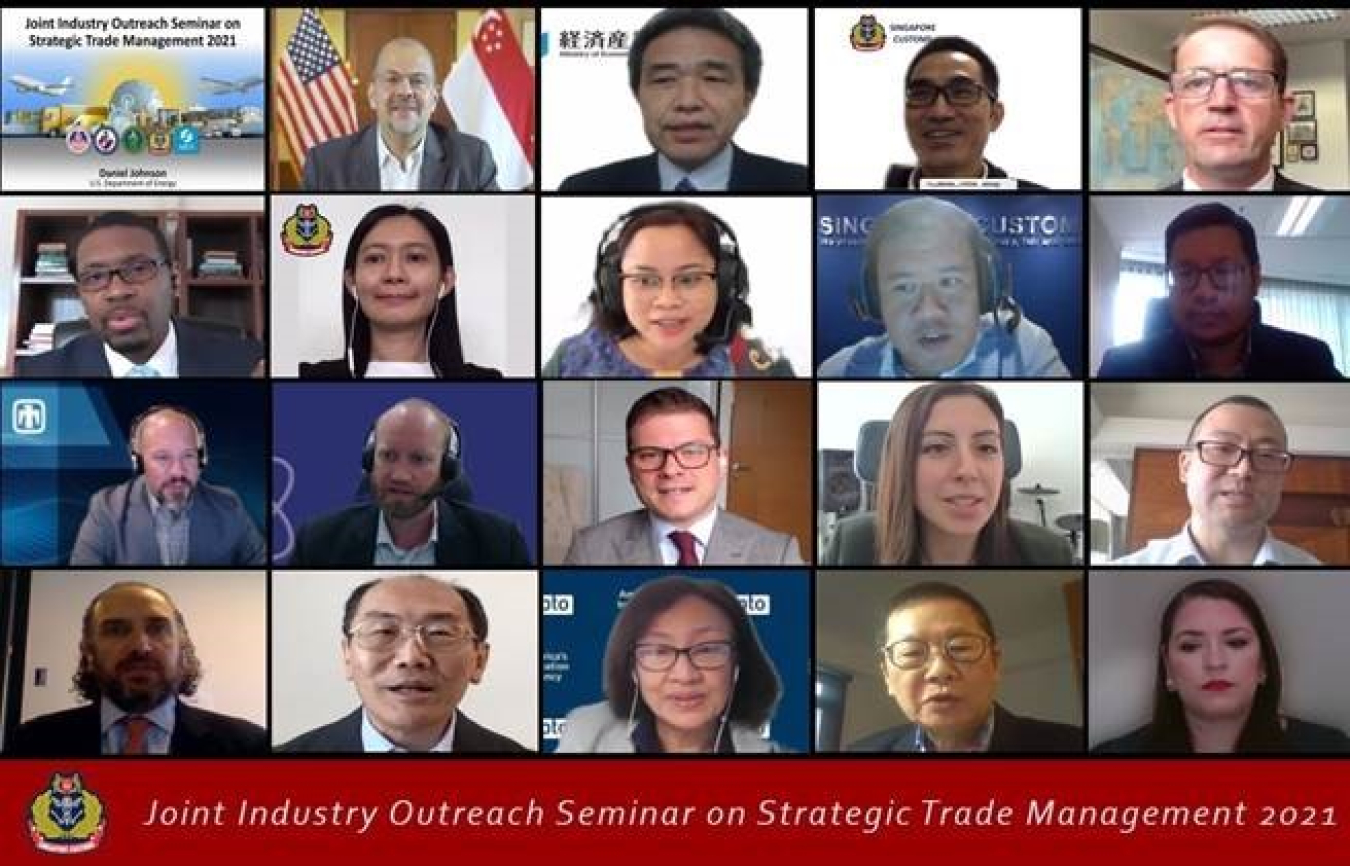Last month, several governments and U.S. federal agencies came together in Singapore to discuss strategic trade controls best practices and highlight updates to export control laws and regulations across the region.
National Nuclear Security Administration
October 12, 2021
Last month, several governments and U.S. federal agencies came together in Singapore to discuss strategic trade controls best practices and highlight updates to export control laws and regulations across the region.
Officials from NNSA, the Department of Commerce’s Bureau of Industry and Security, and the Department of State’s Export Control and Related Border Security partnered with Singapore Customs and Japan’s Ministry of Economy, Trade, and Industry to organize the ninth annual Joint Industry Outreach (JIO) seminar.
[A] proactive outreach to business leaders supports consistent and effective implementation of international and national export control commitments, demonstrating Singapore and JIO partner Japan’s commitment to promoting responsible trade in the region and ensuring dangerous goods stay out of the hands of proliferating States, terrorists, and other malicious actors.
The event attracted approximately 1,000 virtual attendees – the largest in its history – and achieved its objective of connecting government, industry, and academic representatives. Senior officials from Singapore, Japan, the Netherlands, Germany, South Korea, Philippines, Malaysia, as well as regional business leaders, provided presentations and participated in several panel discussions. In addition, the U.S. interagency contributed significantly to the event, with speakers and panelists from the U.S. Embassy in Singapore, the Department of Treasury, the U.S Cybersecurity and Infrastructure Security Agency, the Federal Bureau of Investigation, and the U.S. Patent and Trademark Office.
Kasia Mendelsohn, Acting Deputy Administrator for Defense Nuclear Nonproliferation at NNSA, praised the event, remarking that “proactive outreach to business leaders supports consistent and effective implementation of international and national export control commitments, demonstrating Singapore and JIO partner Japan’s commitment to promoting responsible trade in the region and ensuring dangerous goods stay out of the hands of proliferating States, terrorists, and other malicious actors.”
Key topics discussed throughout the seminar included the intersection of export controls and sanctions, controlling emerging technologies, cyber threats to export controlled data and the supply chain, intangible transfers of technology and intellectual property, export controls for academic and research environments, and tools for internal compliance planning.
“This is our ninth year of what I believe is a true example of not only the valuable cooperation that exists between like-minded international partners, but it is also a testament to how important secure international trade is to us all,” said Rafik Mansour, Chargé D'Affaires at the U.S. Embassy in Singapore.
The United States has collaborated with the Government of Singapore for nearly 20 years to share best practices on effectively managing the flow of proliferation-sensitive goods and technologies. The U.S. Departments of Commerce, Energy, and State are committed to continuing this tradition and furthering progress on effective and efficient strategic trade control implementation in the future.
“Partnership with industry is a critical element of an effective strategic trade control system,” noted Kevin Kurland, Acting Assistant Secretary for Export Enforcement at the Bureau of Industry and Security. “Working hand-in-hand, export control authorities and industry partners can prevent, detect, and deter violations that threaten international peace and stability.”

